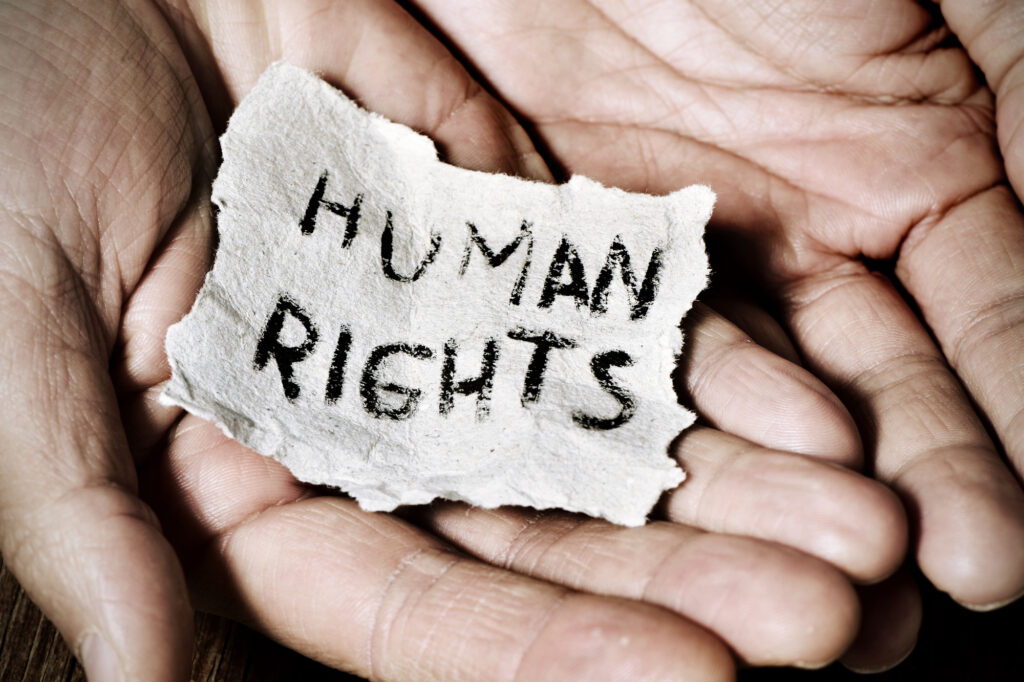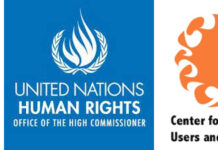An editorial was recently published in the British Journal of Psychiatry to address concerns some psychiatrists have raised regarding the World Health Organization’s (WHO) QualityRights initiative. The editorial, titled “The WHO QualityRights initiative, building partnerships among psychiatrists, people with lived experience, and other key stakeholders to improve the quality of mental healthcare,” addresses the role of psychiatry in promoting human rights in mental healthcare globally.
“In a recent editorial in BJPsych, Hoare & Duffy expressed concerns that the QualityRights training and guidance tools may ‘marginalize’ psychiatry and compromise the rights of persons with mental health conditions,” the authors write.
“It is important to address these concerns and other misperceptions and to highlight how QualityRights is making a major impact improving the quality of psychiatric care in different countries, building partnerships and collaboration among psychiatrists, people with lived experience of mental illness, and other key stakeholders.”
 The primary goal of the World Health Organization’s QualityRights initiative is to change both mindsets and practices to promote rights and recovery for individuals with psychosocial, intellectual, and cognitive disabilities. The WHO has already implemented the QualityRights initiative in alignment with the United Nations Convention on the Rights of Persons with Disabilities (CRPD) in countries across the globe via a comprehensive training that utilizes distinct educational approaches and modules that illustrate both the need for rights-based approaches in mental healthcare as well as its urgency.
The primary goal of the World Health Organization’s QualityRights initiative is to change both mindsets and practices to promote rights and recovery for individuals with psychosocial, intellectual, and cognitive disabilities. The WHO has already implemented the QualityRights initiative in alignment with the United Nations Convention on the Rights of Persons with Disabilities (CRPD) in countries across the globe via a comprehensive training that utilizes distinct educational approaches and modules that illustrate both the need for rights-based approaches in mental healthcare as well as its urgency.
The authors of the editorial, Maria Francesca Moro, Soumitra Pathare, Martin Zinkler, Akwasi Osei, Dainius Pūras, Rodelen C. Paccial, and Mauro Giovanni Carta, are all psychiatrists; their primary intention behind this editorial is to reassure their fellow psychiatrists that the QualityRights’ initiative was designed with psychiatrists in mind.
“Psychiatrists were involved at every stage of the production of the QualityRights materials, and their collaboration was fundamental for this initiative’s success. In total, 8 of the 26 international experts who contributed to drafting the modules and 31 of the 151 reviewers were psychiatrists. Furthermore, when delivering the training to psychiatrists, at least one psychiatrist is involved as a trainer and helps lead the discussion on the most challenging topics.”
Although some vignettes do not shine the best light on psychiatry, they do shine an accurate one. One that does justice to the lived experience of those who have been harmed by their country’s mental healthcare system and its overreliance on psychiatry, medication, and other coercive mental healthcare practices. With that being said, the authors note that QualityRights still recognizes the importance of psychotropic drugs in treatment but that these treatment options ought not to come without alternatives.
In particular, the authors urge psychiatrists to seek out and advocate for alternatives to involuntary practices and be cautious of the danger of criminalizing people with mental health conditions, even in systems with limited resources. They write:
“There is mounting evidence that involuntary practices are deleterious and undermine the dignity and well-being of people with mental health conditions. Involuntary practices often also have negative impacts on trust, including an unwillingness to seek help and engage with practitioners.”
The authors clarify that psychiatrists have played an essential role in the continued realization of the CRPD and are necessary to further the realization and promotion of the QualityRights initiative.
However, they are also apparent that frank discussions concerning the coercive and abusive realities of the field, science, and profession need to be discussed and learned from as the lack of conversation is most likely more harmful than the potential consequences of the marginalization of psychiatry.
****
Moro, M. F., Pathare, S., Zinkler, M., Osei, A., Puras, D., Paccial, R. C., & Carta, M. G. (2021). The WHO QualityRights initiative: building partnerships among psychiatrists, people with lived experience and other key stakeholders to improve the quality of mental healthcare. The British Journal of Psychiatry, 1-3. (Link)















Proof that its all about turf.
Report comment
Why shouldn’t psychiatrists be “marginalized”? The “profession” of psychiatry is about 95% fraud. Even their so-called “diagnoses” are nothing more than a description of the symptoms being passed off as diagnoses. It’s like having pneumonia and being diagnosed with “Coughs a Lot Disorder.” Then the doctor prescribes cough syrup to be taken FOR LIFE, with no hope of recovery. Then people see that the patient never recovers and ASSUME pneumonia is incurable. That’s exactly what psychiatrists do to their patients. Not one conventional psychiatrist has a clue how to find the real biochemical (not “chemical”) of energetic cause of the illness so, of course, they can’t cure anyone. I cured MY loved one by restoring his BIOchemistry with the “orthomolecular” approach, then an “energetic” approach. He’s been well and FREE OF PSYCHIATRISTS (thank God) for years. May the “profession” of psychiatry never darken our doorstep again.
Report comment
Psychiatry is a disaster; it is a terrifying abomination and the people who practice it in America are the most disgusting individuals that I have ever met in my life.
Report comment
Pepe, I so agree with your entire comment.
Report comment
The very fact that these psychiatrists are worried that they will be “marginalized” by some report or whatever put out by W.H.O actually just shows they are “disgusting” as another commenter wrote. But, I would also say about psychiatrists, who really are the sick— the “doctor” or the “patient”? Well, we know the answer to that question? Thank you.
Report comment
The solution to the “coercive and abusive realities” of the “mental health professions” is to take away their right to force “treat” people, steal people’s children, etc.
Let’s be realistic, we all know “power tends to corrupt, and absolute power corrupts absolutely.” So giving any person – let alone any “professions” – absolute power, was a downright stupid idea.
Especially since this so called “right” is being abused by criminal doctors, like this now FBI convicted one, who I had the misfortune of being medically unnecessarily shipped a long distance to:
https://www.justice.gov/usao-ndil/pr/oak-brook-doctor-convicted-kickback-scheme-sacred-heart-hospital
And given the fact that the number one actual societal function of both the psychological and psychiatric industries is covering up child abuse and rape:
https://www.indybay.org/newsitems/2019/01/23/18820633.php?fbclid=IwAR2-cgZPcEvbz7yFqMuUwneIuaqGleGiOzackY4N2sPeVXolwmEga5iKxdo
https://www.madinamerica.com/2016/04/heal-for-life/
And all this child abuse covering up also functions to aid, abet, and empower the child abusers and traffickers, thus has left us all living in a “pedophile empire,” with child sex trafficking and pedophilia running amok.
https://medicalkidnap.com/2018/08/05/america-1-in-child-sex-trafficking-and-pedophilia-cps-and-foster-care-are-the-pipelines/
https://www.amazon.com/Pedophilia-Empire-Chapter-Introduction-Disorder-ebook/dp/B0773QHGPT
And given the fact that the ADHD drugs and antidepressants can create the “bipolar” symptoms.
https://www.alternet.org/2010/04/are_prozac_and_other_psychiatric_drugs_causing_the_astonishing_
rise_of_mental_illness_in_america/
And the “bipolar” and “schizophrenia” drugs – the antipsychotics/neuroleptics – can create both the negative and positive symptoms of “schizophrenia,” via NIDS and anticholinergic toxidrome.
https://en.wikipedia.org/wiki/Neuroleptic-induced_deficit_syndrome
https://en.wikipedia.org/wiki/Toxidrome
Meaning the two “most serious” DSM disorders are iatrogenic illnesses – created with the psych drugs – not “genetic” illnesses. Thus, the entire theology of the psychiatric DSM “bible” is scientifically “invalid.”
http://psychrights.org/2013/130429NIMHTransformingDiagnosis.htm
And given the criminal nature of all the systemic crimes of the psychiatric DSM “bible” billing industries, I don’t see what “harm” will come from the “marginalization” – or even elimination – “of psychiatry.”
But I will say, now that the unconstitutional and egregious behavior – and the ramifications of what the “mental health” industries have been doing in private for over a century – are publicly known. I do understand why they’d be embarrassed to talk about their systemic crimes.
Their crimes and sins are unforgivable. Or at least such is true of the sin that my psychologist and psychiatrists committed – at least according to the Holy Bible, and their medical records – which was blasphemy of the Holy Spirit.
Report comment
Removed for moderation.
Report comment
There is no way to provide reasonable mental health care without at least marginalizing psychiatry. I’m surprised that they were able to find so many psychiatrists to contribute and review.
Report comment
I agree! I say, marginalize away!
I doubt, however, that this is the actual intention of the U.N. I find these “initiatives” full of lip service not backed up by effective action.
Report comment
I guess that I would be concerned about being “marginalized” if it was my job to “marginalize” others, especially the most vulnerable. Thank you.
Report comment
Not just marginalized but it is respect they crave, yet do everything to sabotage
what they crave. 🙂
Report comment
Why should being “marginalized” be of the slightest relevance in a supposedly scientific field? Doctors don’t exist to feed their own egos! If you are not effective, you SHOULD be marginalized! It shows how invested psychiatry is in marketing over substance!
Report comment
Are mental patients’ rights different from human rights?
Those marginalized people seem to think: “Yes”. Well this is the problem.
Report comment
Well, dear psychiatry, etc. I have already marginalized you. In fact, like a bad memory, I am working to put you out of my mind, so I really can be of good cheer and good health. Thank you.
Report comment